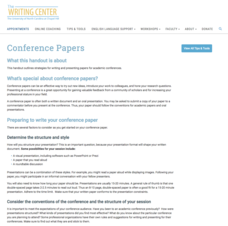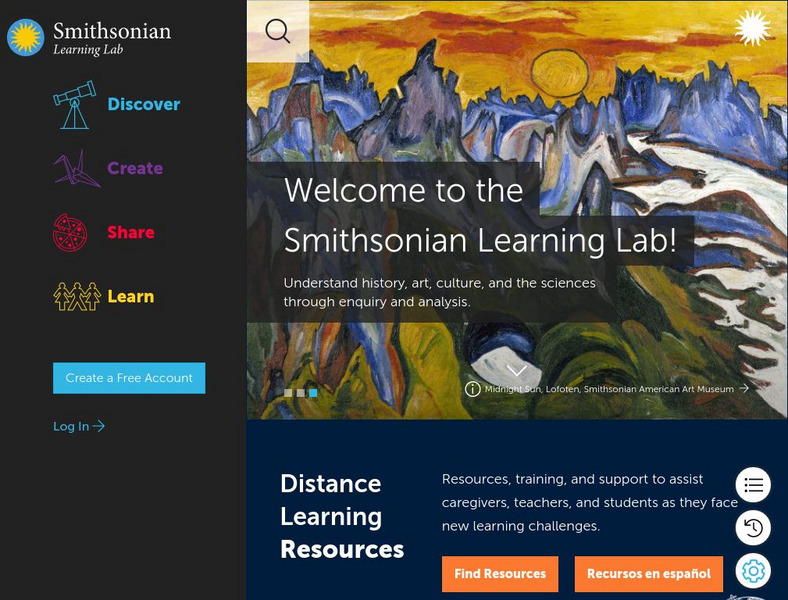Judicial Learning Center
The Appeal Process
Why doesn't the Supreme Court hear testimony from witnesses? How do they complete an entire proceeding in less than two hours? A helpful lesson guides scholars of criminology through these and other questions by explaining how appeals...
University of North Carolina
Conference Papers
In the world of academia, conference papers and presentations play a big role. It's through conference papers that professors and graduate assistants share their research with others in the field. A handout on conference papers, part of...
National Constitution Center
Interactive Constitution
Did you know there are seven Articles and 27 Amendments to the US Constitution? Explore each and every one of them, including the Bill of Rights and other rights around the world, in a super neat US Constitution interactive.
Other
The Dbq Project
Teach students how to read with understanding, think straight, and write clearly using document-based questions.
Smithsonian Institution
Smithsonian Learning Lab: Teaching With Primary Sources
Five lesson plans, complete with videos, primary sources, and document-based questions (DBQ) to encourage students to utilize primary sources and incorporate thinking and writing into daily learning. Topics include: Artifact &...
Tom Richey
Tom Richey: The New Apush Dbq
For the 2016 AP US History exam, the College Board has modified the scoring rubric for the Document-Based Question (DBQ) in an effort to make all AP history scoring consistent. Find straightforward explanations for executing the latest...
Tom Richey
Tom Richey: The Ap European History Dbq
For the 2016 AP US History exam, the College Board is using a new exam format for AP European History, including a brand new Document-Based Question (DBQ) format devised to make all AP history scoring consistent. This is intended to...






